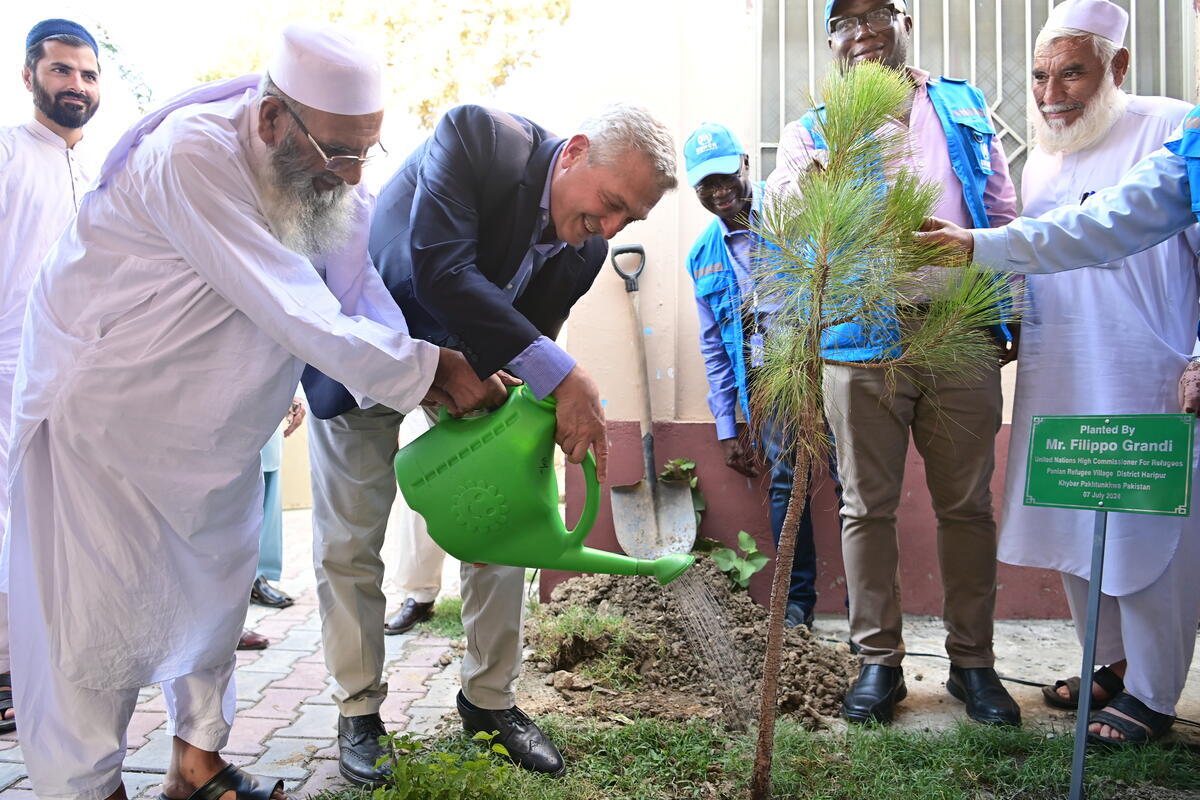Vulnerable Afghans cast off crutches of dependency
Vulnerable Afghans cast off crutches of dependency

PESHAWAR, Pakistan, September 28 (UNHCR) - There are times when life pulls the rug from under your feet. Waris was only a boy when an accident left him crippled in eastern Afghanistan. "I lost my leg to a landmine in Jalalabad. I was very much disappointed and I thought that I would always be financially dependent on others," he said.
Today, thanks to the Syed Jamaluddin Afghani Welfare Organization (SJAWO) in Peshawar, north-western Pakistan, the 25-year-old Afghan has found hope: "The situation has changed. I am enrolled in a tailoring course and I am sure that once I complete it, I will be able to support not only myself but also my siblings and mother."
The UN refugee agency has been funding SJAWO since 1991 to provide vocational training and basic education to people with disabilities and vulnerable Afghan refugees in Pakistan.
"Vocational training is useful for refugees during their period of asylum," said Mata-ul-Hussain Changaiz, UNHCR's community services assistant in Peshawar. "It can also play an important role in the rehabilitation of their country and help prepare some of the young people for a productive life once they return home. This training is part of the ladder of opportunity for some refugees, especially if they come from the most vulnerable strata of society."
Haji Ghulam Dastagir, the white-bearded director of SJAWO, established the organisation because "persons with disabilities cannot do jobs which require a lot of mobility, therefore we train them in fields which prove very beneficial to them. We take account of the current circumstances, market demand, capacity and opportunities and design our training accordingly."
Since the establishment of SJAWO, a total of 7,799 men and 3,355 women have been trained under its programmes. One hundred Afghan men and women are learning different skills in the current session, which runs from July to December. Training ranges from embroidery, carpentry, plumbing, tailoring, masonry and welding to painting, bar bending, carpet weaving, gabion weaving, blacksmithing, tinsmithing, leatherwork and secretarial work. The sessions also include basic education.
Women, especially, have shown great interest. "The Afghan women are very enthusiastic to learn new skills," said Dastagir. "These skills enable them to earn a decent livelihood without leaving the house." Male trainees are provided with hostel facilities.
Sheikhba, a 25-year-old Afghan woman, said, "We have been deprived of everything, but I am learning to weave carpets. I have heard that it is a well-paid job. Once I learn it, I will teach it to my sisters. I want to go back to Afghanistan but I cannot - we don't have a house or any source of income."
The UN refugee agency provides the trainees with complete tool kits upon the completion of their course. "We keep a track of the trainees and, according to a survey, more than 90 percent of them are earning a decent livelihood by practising the skills they have learned," said SJAWO's Dastagir proudly.
More than 130,000 Afghans have repatriated from Pakistan with UNHCR assistance so far this year, bringing to 2.87 million the total number who have returned to Afghanistan from Pakistan since 2002. An estimated 2.4 million Afghans are still living in Pakistan.
By Rabia Ali in Peshawar, Pakistan







